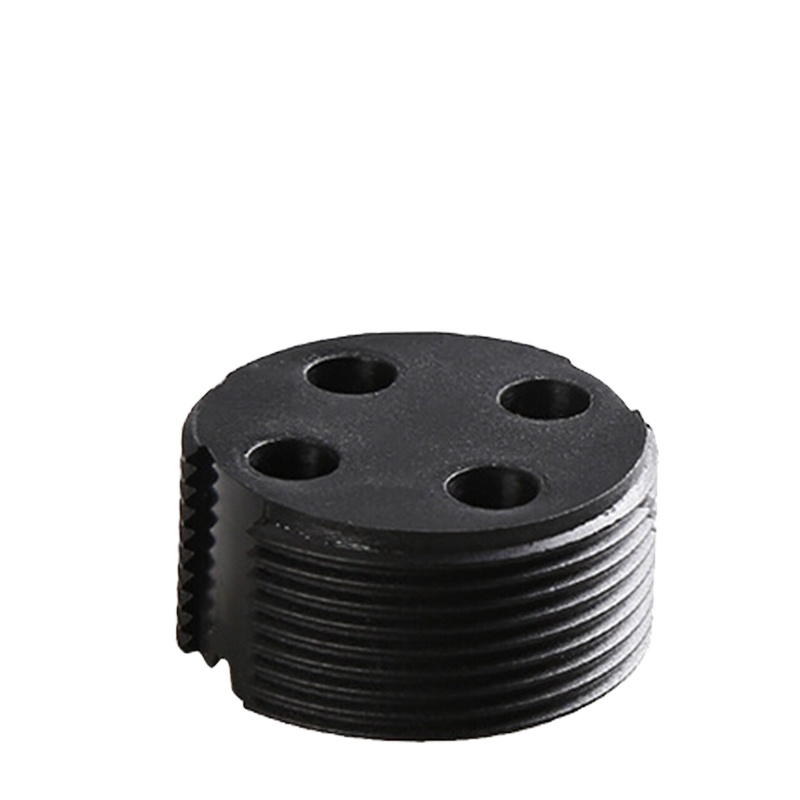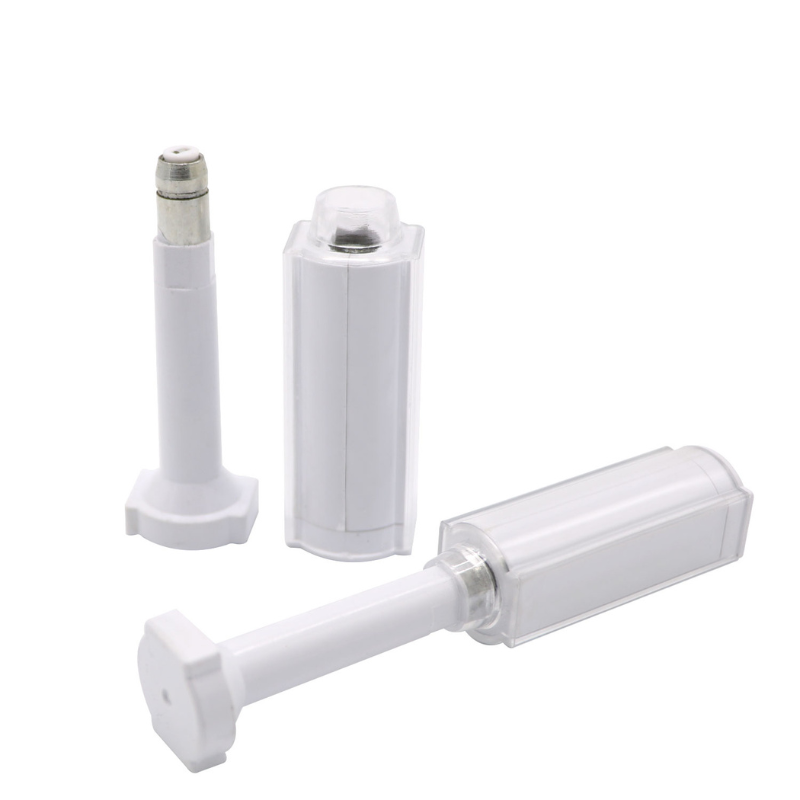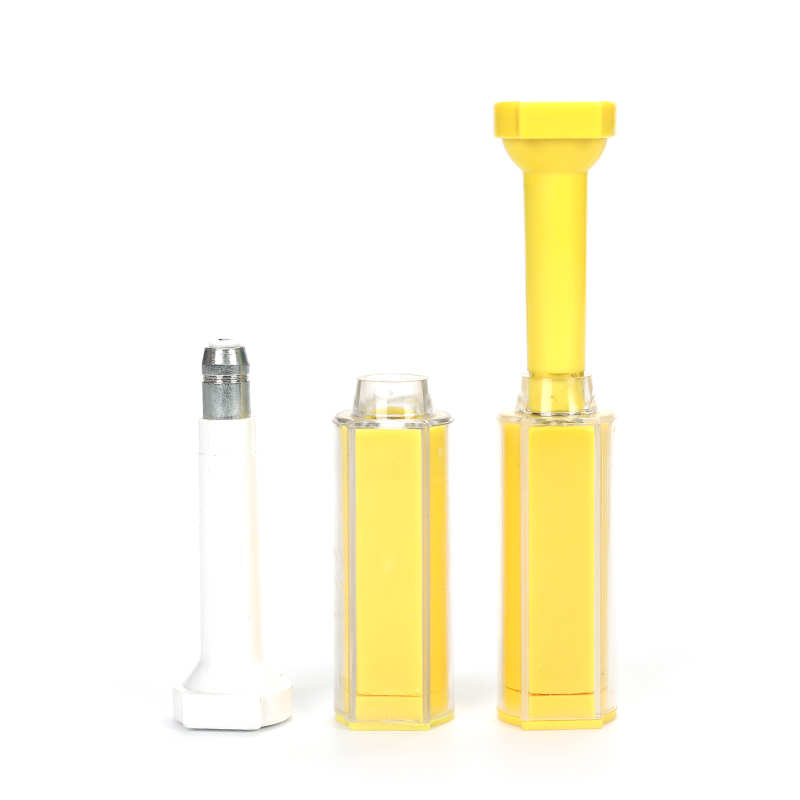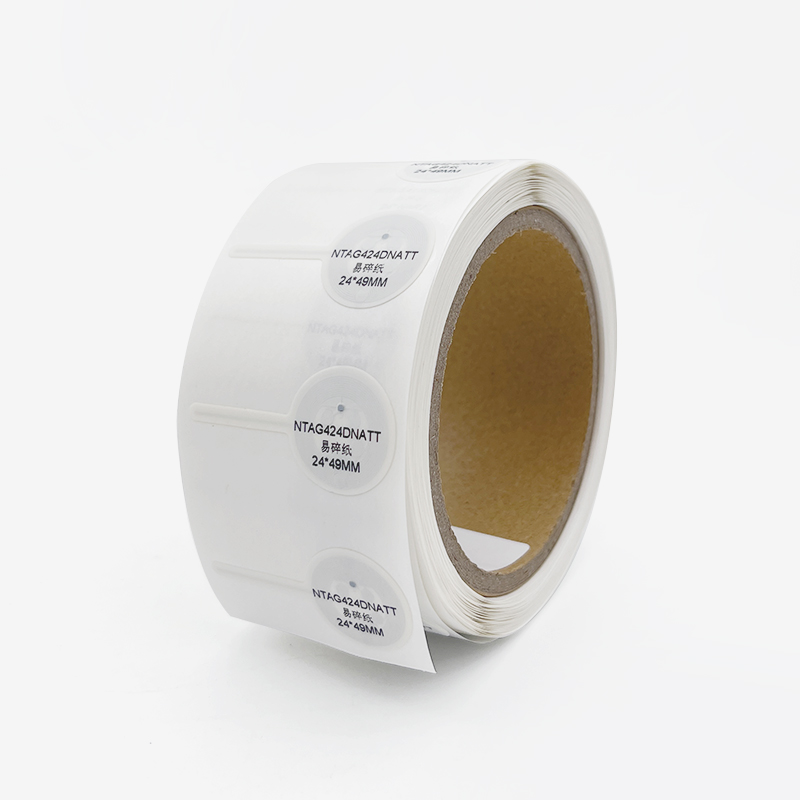
Advances in RFID Laundry Systems: Enhancing Efficiency and Reducing Costs
Table of Contents
Summary
By leveraging RFID technology, organizations like casinos, hospitals, and hotels can effectively monitor and manage
By leveraging RFID technology, organizations like casinos, hospitals, and hotels can effectively monitor and manage laundry items, significantly improving asset visibility and reducing losses due to theft or mismanagement. This article delves into the advancements in RFID laundry technology, its applications, and its impact on operational efficiency and cost reduction.
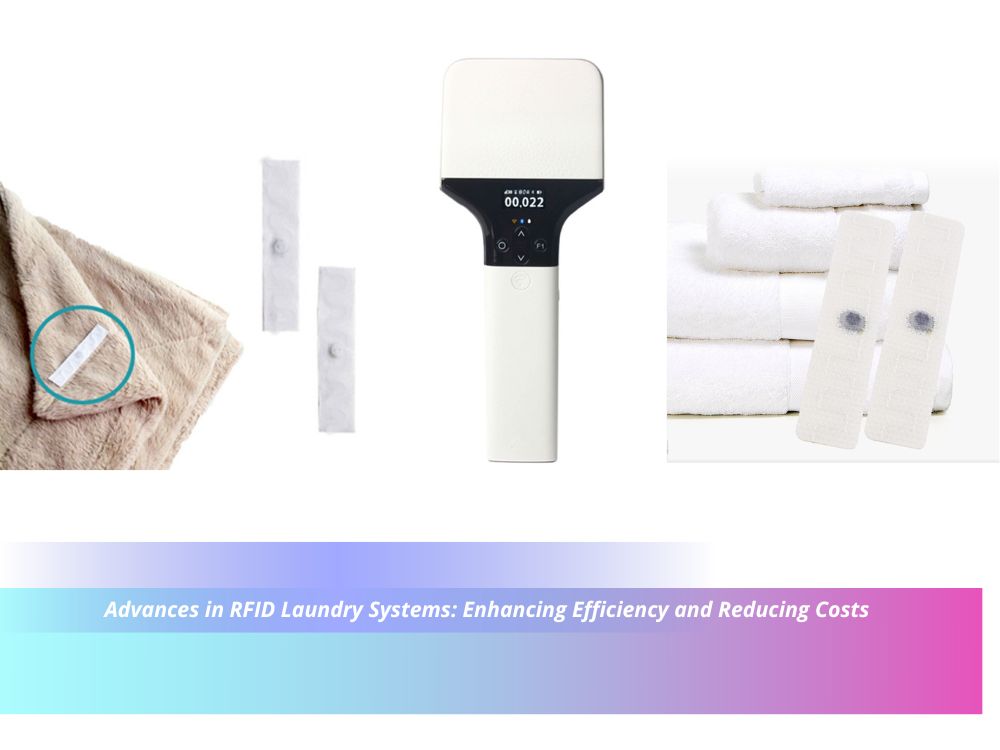
Technological Evolution in RFID Laundry Systems
Early Developments and Market Trends
RFID technology in laundry management has evolved from initial implementations using low-frequency and high-frequency solutions to the adoption of passive ultrahigh-frequency (UHF) tags. These advancements have resulted in notable improvements in performance and cost-effectiveness. According to Michael Liard, RFID Director at VDC Research, passive UHF tags, introduced around 2010, now dominate the market due to their durability and lower cost—approximately 20% less than older technologies.
Benefits of UHF RFID Tags
UHF RFID tags, designed to endure the harsh conditions of commercial laundry processes, offer significant advantages. They feature a unique ID number for each item, enabling efficient tracking over longer distances. This capability allows entire carts of uniforms or linens to be processed simultaneously, enhancing operational efficiency. Jeff Welles of InvoTech Systems highlights that these tags streamline the identification and counting process, eliminating the need for manual sorting and recording.
Deployment and Customization
Organizations may choose to develop in-house RFID solutions or collaborate with systems integrators. For example, Disney integrated passive UHF tags from Fujitsu Frontech North America with readers from ThingMagic to enhance its Garment Utilization System. Additionally, complete RFID solutions, including tags, readers, and software, have become more prevalent, providing turnkey options for comprehensive laundry management.
Customizing RFID Solutions
The flexibility of RFID solutions allows healthcare facilities to customize deployment based on their needs. For instance, CenTrak offers solutions that integrate with existing systems, enhancing their value by adding patient tracking and hand-hygiene compliance monitoring. Similarly, Sanitag provides modular platforms that can be scaled as required, while SecuriCode’s solutions offer detailed tracking capabilities at various levels, including room and bed-level accuracy.
Key RFID Laundry Solutions
Comprehensive Systems and Providers
Several companies offer integrated RFID laundry solutions, combining tags, readers, and software to streamline laundry operations.
Table: Leading RFID Laundry Solutions Providers
Provider | Solution Features | Typical Application |
InvoTech Systems | GIMS systems for linens, uniforms, and multiproperty management. Includes tracking, inventory, and billing. | Casinos, hospitals, hotels |
RFID Laundry Consultant | Simple Sort system for automatic sorting and alerting. Customizable for industrial and specialized laundry. | Industrial laundry, clean-room uniforms |
Towel Tracker | Towel tracking for fitness clubs and hotels. Includes dispensing and return units with RFID-tagged towels. | Fitness clubs, hotels |
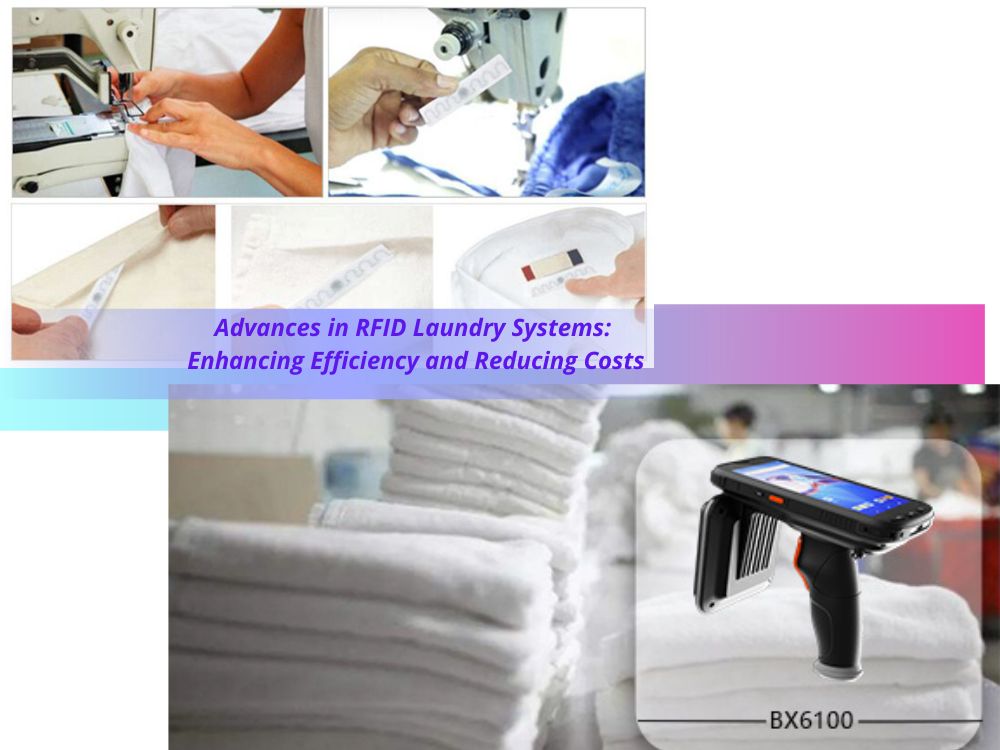
Emerging Uses and Innovations
The application of RFID tags extends beyond traditional linens and uniforms. Dan Dalton from Fujitsu Frontech North America notes an increase in demand for tracking clothing and linens across various sectors, including healthcare and hospitality. RFID tags are now used to track cleaning equipment, such as textile mops, enhancing accountability and traceability.
RFID Tag Durability and Security
RFID tags are designed to withstand the rigorous conditions of commercial laundry, including high temperatures, chemical exposure, and mechanical stress. For instance, HID Global’s tags are tested for extreme pressure and twisting to ensure durability. Additionally, security features in some tags allow for data protection, including password protection and unique serial numbers, as noted by Brent Howell from William Frick & Co.
Implementation Challenges and Solutions
Tagging Processes
The initial tagging of inventory can be challenging. InvoTech Systems provides solutions for both new and existing inventory, including pre-inserted tags and heat-seal machines. Simple Sort offers machines to facilitate the tagging process, which can be customized based on the customer’s needs.
Domestic Mills and Lean Supply Models
Towel Tracker’s Steven Molewyk suggests that domestic mills could capitalize on the lean supply model by tagging towels at the mill. Although this model has yet to be widely adopted, it presents significant opportunities for efficiency and cost savings.
Future Outlook
The RFID laundry market is experiencing rapid growth, driven by the declining costs of UHF RFID tags and increasing adoption across various sectors. As the cost of linens and clothing rises, the value of RFID technology in managing laundry efficiently becomes more apparent. According to Dalton, the adoption rate is expected to continue increasing, particularly in hospitality and healthcare sectors.
Conclusion
RFID laundry systems represent a significant advancement in the management of uniforms and linens, offering enhanced efficiency, cost savings, and operational improvements. As technology continues to evolve and adoption rates increase, RFID will likely play an even more critical role in transforming laundry operations across diverse industries.
Comments
Hot Products
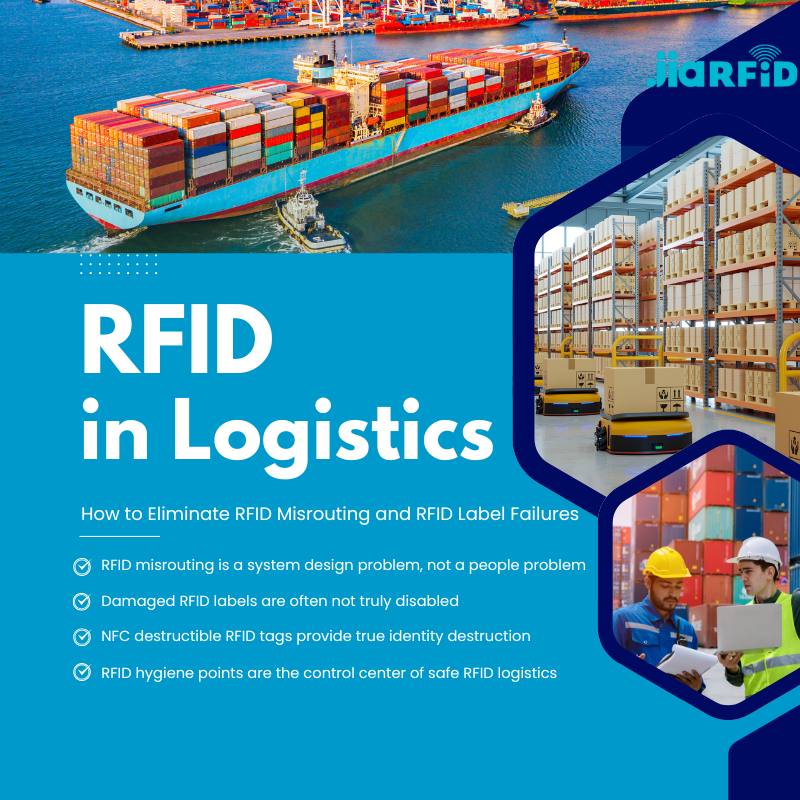
RFID in Logistics: How to Eliminate RFID Misrouting and RFID Label Failures
RFID in logistics is more than just a tool to speed up processes. It has become a key part of how modern supply chains operate.
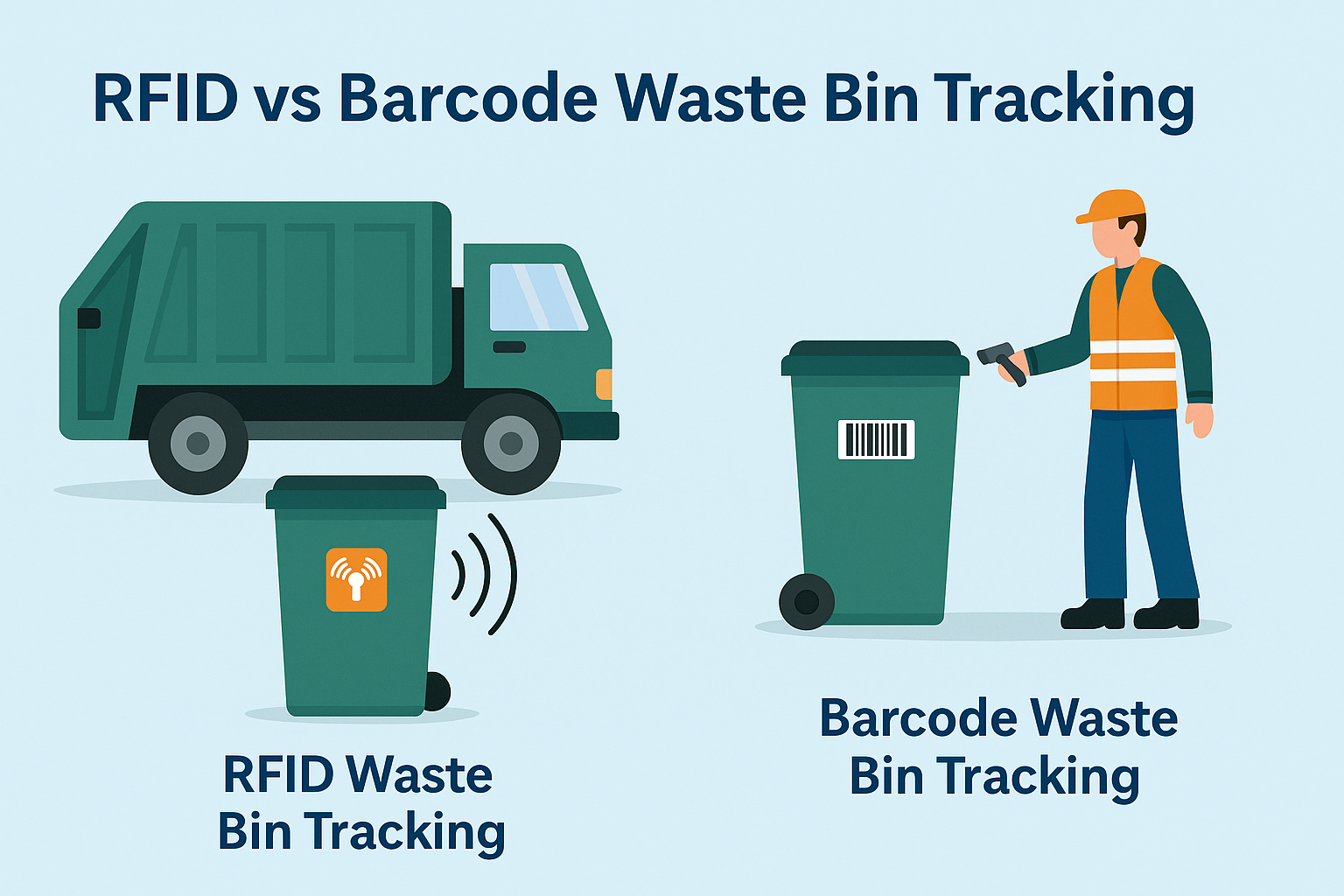
What Is RFID Waste Management
Imagine a city where every trash bin speaks — not literally — but through a tiny chip that tells the system when it’s full, when it’s emptied, and where it went. That’s what RFID waste management is doing today.
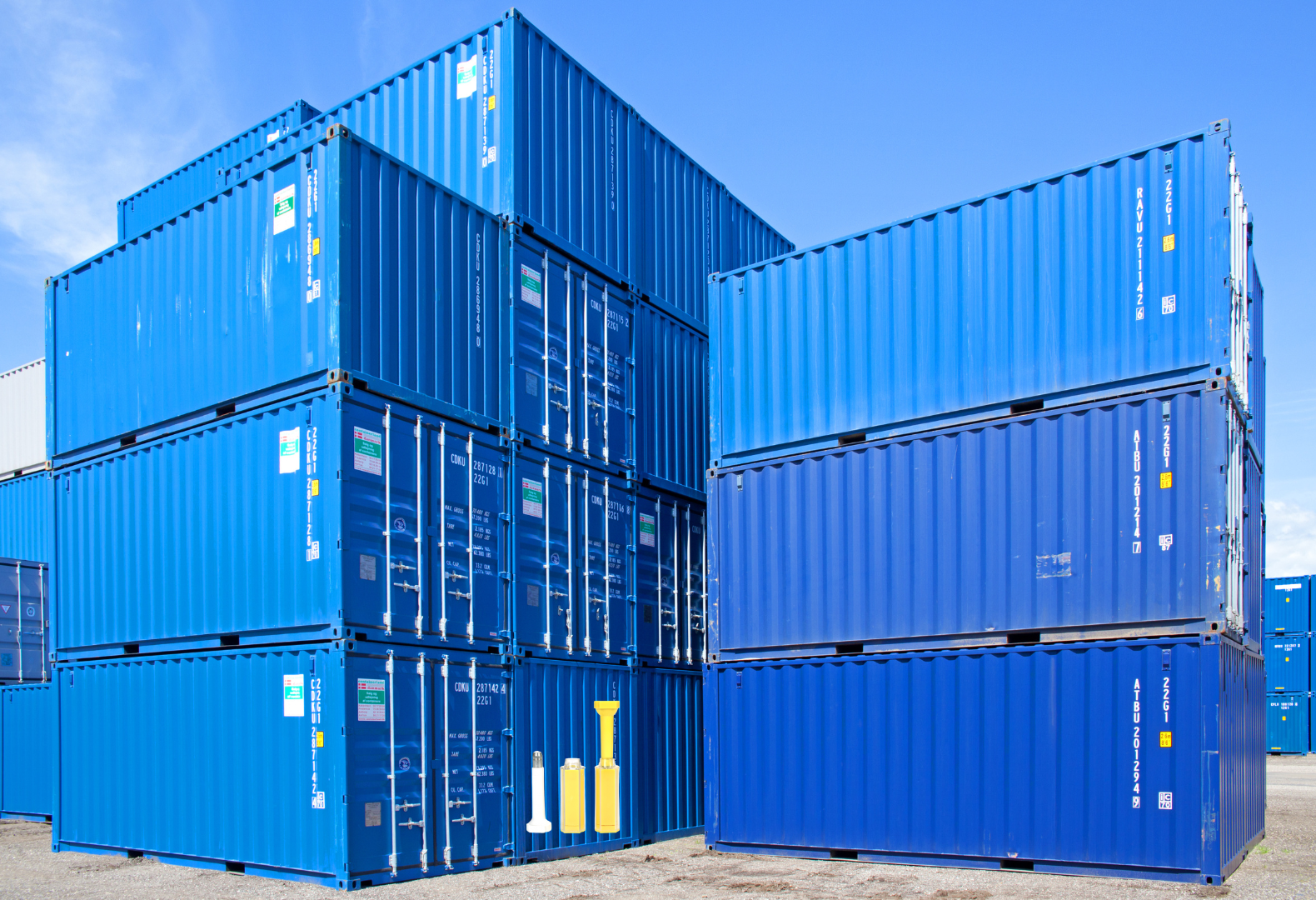
What are Bolt Seals and their Applications? | Complete Guide
In global trade and logistics, bolt seals play a crucial role in ensuring cargo security and compliance. These small but powerful devices are designed to lock shipping containers, trailers, and cargo doors with a tamper-evident mechanism.
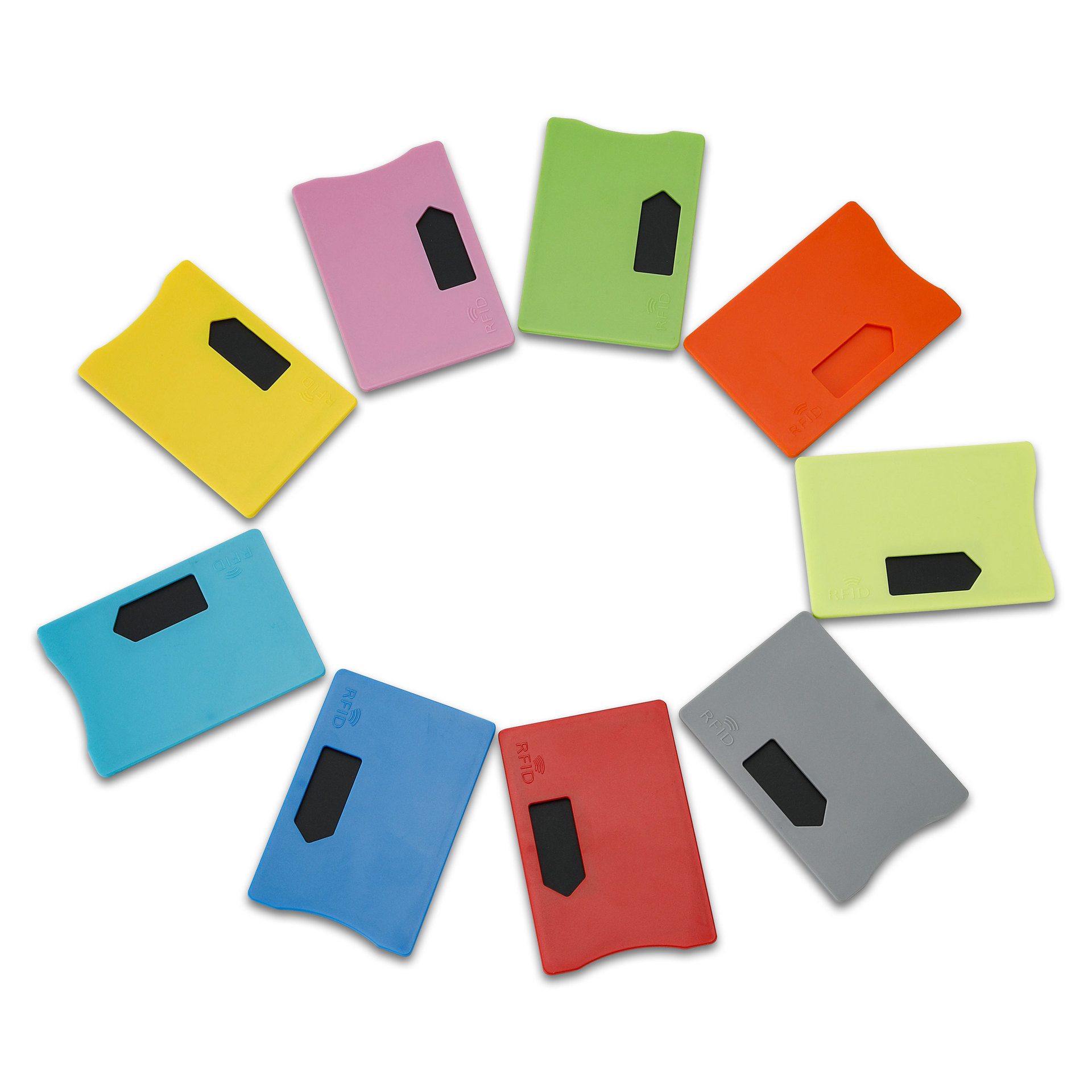
What is an RFID Card Protector? Benefits, Use Cases, and Buying Guide
RFID technology (Radio Frequency Identification) is everywhere: in your credit cards, ID badges, transit passes, hotel room keys, and more. It offers speed and convenience, but it also opens the door to a new kind of digital theft called “skimming.” That’s where an RFID card protector comes in.

RFID Wristbands for Events: Bulk Buying Guide for Organizers
RFID wristbands for events are becoming the go-to solution for organizers who need faster entry, fraud prevention, and cashless payments at concerts, festivals, and sports venues. Unlike paper tickets or QR codes, these smart wristbands use embedded chips to streamline access, secure transactions, and improve the guest experience.
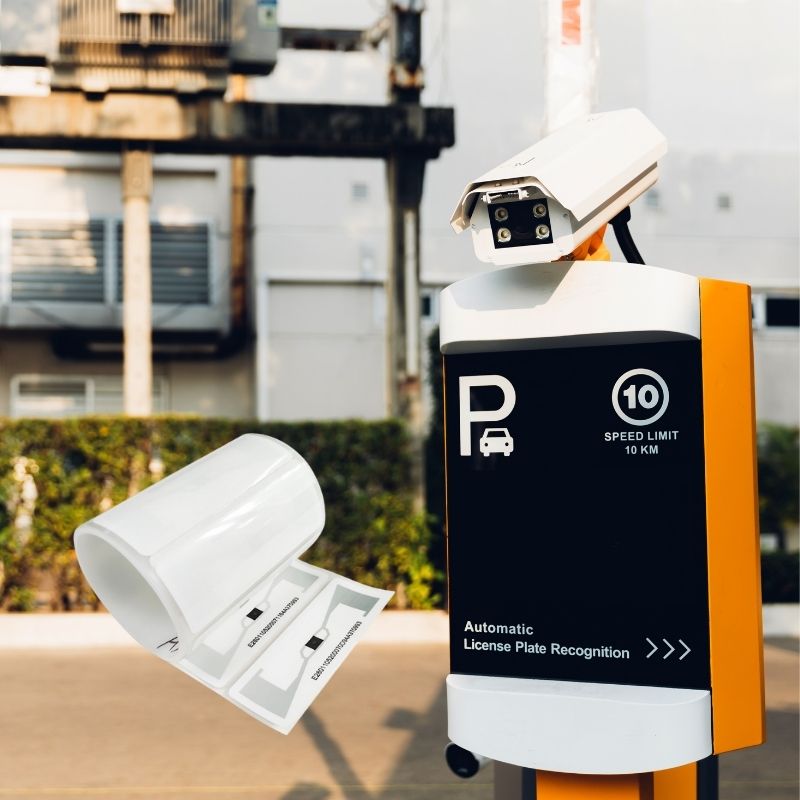
How RFID Tag on Windscreen Improves Vehicle Access Control and Toll Systems
In today’s fast-paced world, vehicle identification needs to be quick, secure, and contactless. An RFID Tag on the Windscreen provides exactly that — a reliable way to manage toll collection, parking, and gated access without stopping vehicles.
Tags
RELATED BLOGS

RFID in Logistics: How to Eliminate RFID Misrouting and RFID Label Failures
RFID in logistics is more than just a tool to speed up processes. It has become a key part of how modern supply chains operate.

What Is RFID Waste Management
Imagine a city where every trash bin speaks — not literally — but through a tiny chip that tells the system when it’s full, when it’s emptied, and where it went. That’s what RFID waste management is doing today.

What are Bolt Seals and their Applications? | Complete Guide
In global trade and logistics, bolt seals play a crucial role in ensuring cargo security and compliance. These small but powerful devices are designed to lock shipping containers, trailers, and cargo doors with a tamper-evident mechanism.


